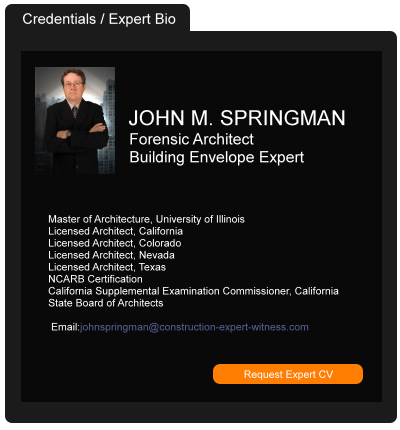Washington Builders Right To Repair Current Law Summary:
Current Law Summary: (SB 5536) The legislature passed a contractor protection bill that reduces contractors' exposure to lawsuits to six years from 12, and gives builders seven "affirmative defenses" to counter defect complaints from homeowners. Claimant must provide notice no later than 45 days before filing action; within 21 days of notice of claim, "construction professional" must serve response; claimant must accept or reject inspection proposal or settlement offer within 30 days; within 14 days following inspection, construction pro must serve written offer to remedy/compromise/settle; claimant can reject all offers; statutes of limitations are tolled until 60 days after period of time during which filing of action is barred under section 3 of the act. This law applies to single-family dwellings and condos.
Building Expert Contractors Licensing
Guidelines Seattle Washington
A license is required for plumbing, and electrical trades. Businesses must register with the Secretary of State.
Association Directory
Local # 4955
335 116th Ave SE
Bellevue, WA 98004
http://www.masterbuildersinfo.com
Seattle Washington Building Expert 10/ 10
Home Builders Association of Kitsap County
Local # 4944
5251 Auto Ctr Way
Bremerton, WA 98312
http://www.kitsaphba.com
Seattle Washington Building Expert 10/ 10
Home Builders Association of Spokane
Local # 4966
5813 E 4th Ave Ste 201
Spokane, WA 99212
http://www.shba.com
Seattle Washington Building Expert 10/ 10
Home Builders Association of North Central
Local # 4957
PO Box 2065
Wenatchee, WA 98801
http://www.nchba.cc
Seattle Washington Building Expert 10/ 10
MBuilders Association of Pierce County
Local # 4977
PO Box 1913 Suite 301
Tacoma, WA 98401
http://www.mbapierce.com
Seattle Washington Building Expert 10/ 10
North Peninsula Builders Association
Local # 4927
PO Box 748
Port Angeles, WA 98362
Seattle Washington Building Expert 10/ 10
Jefferson County Home Builders Association
Local # 4947
PO Box 1399
Port Hadlock, WA 98339
http://www.jeffcohomebuilders.com
Seattle Washington Building Expert 10/ 10
Building Expert News and Information
For Seattle Washington
Still Going, After All This Time: the Sacketts, EPA and the Clean Water Act
2018 Legislative Changes Affecting the Construction Industry
Construction Litigation Roundup: “Too Soon?”
New Jersey Condominium Owners Sue FEMA
Safety Accusations Fly in Dispute Between New York Developer and Contractor
Retired Judge Claims Asbestos in Courthouse gave him Cancer
Does the Miller Act Trump Subcontract Dispute Provisions?
No Bad Faith in Insurer's Denial of Collapse Claim
Former UN General Assembly President Charged in Bribe Scheme
Brazil’s Former President Turns Himself In to Police
Sometimes It’s Okay to Destroy Evidence
Economic Waste Doctrine and Construction Defects / Nonconforming Work
The Independent Tort Doctrine (And Its Importance)
$48 Million Award and Successful Defense of $135 Million Claim
A Quick Virginia Mechanic’s Lien Timing Refresher
A Duty to Design and Maintain Reasonably Safe Roadways Extends to All Persons. (WA)
Florida Courts Say that Developers Are Responsible for Flooding
Nevada Senate Minority Leader Gets Construction Defect Bill to Committee
Facts about Chinese Drywall in Construction
Groundbreaking on New Boulder Neighborhood
Start-up to Streamline Large-Scale Energy Renovation
California Appeals Court Remands Fine in Late Completion Case
Hydrogen Powers Its Way from Proof of Concept to Reality in Real Estate
Two Things to Consider Before Making Warranty Repairs
No Coverage for Homeowner Named as Borrower in Policy but Not as Insured
Orange County Team Obtains Unanimous Defense Verdict in Case Involving Failed Real Estate Transaction
A Networked World of Buildings
Thirteen Payne & Fears Attorneys Honored by Best Lawyers
Ordinary Use of Term In Insurance Policy Prevailed
Virginia Chinese Drywall and pollution exclusion
Appellate Court of Maryland Construes Notice Conditions of A312 Performance Bond in Favor of Surety
The Drought Is Sinking California
Coverage for Named Windstorm Removed by Insured, Terminating Such Coverage
California Trial Court Clarifies Application of SB800 Roofing Standards and Expert’s Opinions
Northern District of Mississippi Finds That Non-Work Property Damages Are Not Subject to AIA’s Waiver of Subrogation Clause
California’s Prompt Payment Laws: Just Because an Owner Has Changed Course Doesn’t Mean It’s Changed Course on Previous Payments
Hydrogen—A Key Element in the EU’s Green Planning
California Reinstates COVID-19 Supplemental Paid Sick Leave
Cuomo Proposes $1.7 Billion Property-Tax Break for New York
Real Estate & Construction News Roundup (09/06/23) – Nonprofit Helping Marginalized Groups, Life Sciences Taking over Office Space, and Housing Affordability Hits New Low
Commencing of the Statute of Repose for Construction Defects
Southern California Super Lawyers Recognizes Four Snell & Wilmer Attorneys As Rising Stars
Homeowners Should Beware, Warn Home Builders
Tejon Ranch Co. Announces Settlement of Litigation Related to the Tejon Ranch Conservation and Land Use Agreement
KB Home Names New President of its D.C. Metro Division
Liability Insurer’s Duty To Defend Insured Is Broader Than Its Duty To Indemnify
General Contractor/Developer May Not Rely on the Homeowner Protection Act to Avoid a Waiver of Consequential Damages in an AIA Contract
Temporary Obstructions Are a Permanent Problem Under the Americans with Disabilities Act
Chicago Criticized for Not Maintaining Elevator Inspections
Heads I Win, Tails You Lose. Court Finds Indemnity Provision Went Too Far


































































